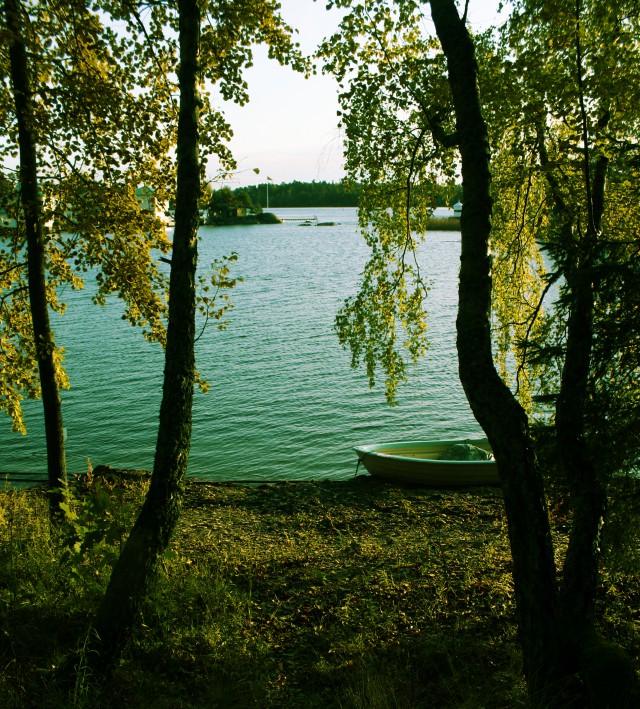
This is one of the runners-up in our Summer Flash Fiction Contest. The other runner-up can be read here, and the winner can be read here.
When Juniper Ross was in seventh grade, she tore out her own stitches. She was down at the swimming hole on Piscasset Street crouched at the edge of the cold, still river. The dull ache of smooth round rocks pressed into her bare feet. Up on the road, a cluster of high school girls stood giggling in bright colored bikinis as their boyfriends climbed to the top of the bridge and jumped off one at a time, their bodies taking flight like smooth adolescent birds.
“There’s eels in that river,” her best friend Lydia had told her in math class earlier, punching numbers into the calculator painted pink with nail polish. “It’s gross. I’m never swimming there.”
Juniper peered at her reflection in the water. Her bike, purple and tinged with rust, rested against an oak tree. On the bridge above, a boy in a red bathing suit cannonballed into the air. A car moved overhead with a sound like gentle thunder.
Juniper did not know how to swim. Her parents had refused to teach her because of the incident in the lake in Maine. Her mother only referred to it as “the incident.” It was never called what it was: the day Gretchen, Juniper’s beautiful, yellow-haired sister had drowned. Juniper couldn’t remember much of it, or even why, and her parents, perpetually staring quietly at plates of limp spaghetti over supper, always seemed too sad to talk about it. There was an image in Juniper’s head though, from that day. She wasn’t sure if it was real or imagined, but if she squeezed her eyes shut, she could see it. She could see Gretchen, floating there, long hair lifted up by the water in a golden pool around her face, fingers delicate and spread wide. She wasn’t dead. It had to have been the moment before she let go of her last breath, before she closed her eyes to the blue sky and let go. Juniper remembered watching overhead from the big rock, too enraptured by the calm smile on Gretchen’s lips to do anything. Her death had looked too beautiful to touch, too peaceful to help.
Juniper’s house had no sharp edges. Her parents drove the speed limit. She was not allowed to ride her bike without a helmet. Days before coming to the swimming hole, she had realized that her skin had never been cut or bruised. It needed to be opened up. It needed to bleed, to feel things. With the sharpest knife in the kitchen, she’d made the tiny sliver on the milky white skin on top of her hand. A perfect straight line of blood rose to the surface and she remembered the lesson in biology class about how blood only turned red when it met air. It barely hurt. She cut more, kept cutting until her head was floating and she’d gone too far.
In the hospital, they’d sewn it up like a piece of cloth. Her parents watched with blank eyes. Juniper ran her fingers over it once it was finished, eyes bright and fascinated.
It was late May, and the doctor said, “You can’t go swimming with these stiches.” Juniper’s parents looked at her and she looked back at them, and she thought about the swollen river on Piscasset Street.
At the water’s edge, Juniper rested her hand on a damp rock and worked the stitches out with her other hand, the feeling of dark, crusted blood unfamiliar when it brushed against her soft palm. The stitches were black, jagged. Eight of them. She tugged the coarse thread out, pulling with the urgency of a doctor, the care of a mother. Pulling so she could enter the water, teach herself to float like Gretchen, to swim like the teenagers, to dive deep into the river and see the rocks at the bottom, the plants reaching upwards, the slender eels moving in the light from the sun. Slowly, the stitches came out, opening her hand up again so that her skin could breathe.
It hurt, but she kept going.














